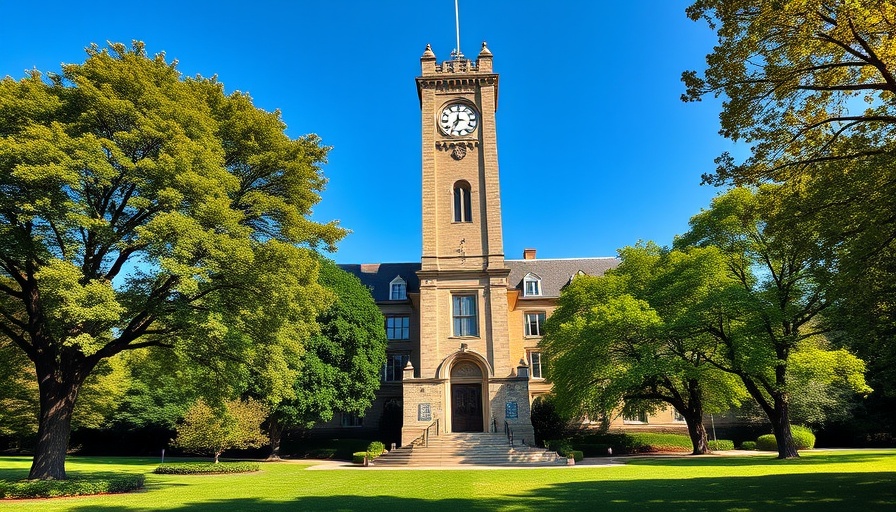
Unpacking the Disappearance of a Cybersecurity Scholar
In a shocking series of events, the academic community is grappling with the disappearance of Xiaofeng Wang, a data privacy professor at Indiana University. Following the abrupt termination of his position amid an FBI investigation, both Wang and his wife—the latter also a university employee—have found themselves at the center of escalating scrutiny. His wife, Nianli Ma, has voiced concerns over what she perceives as unjust treatment from the U.S. government, branding their situation as a form of targeted persecution.
Concerns Over Academic Freedom
The case has sparked fears among scholars regarding the revival of the controversial China Initiative, originally launched during the Trump administration, allegedly to combat economic espionage but widely criticized for disproportionately affecting Chinese-born researchers. As the academic landscape faces potential repercussions, Ma's steadfast determination to challenge these accusations reflects a broader sentiment among academics who fear that their professional lives may be jeopardized by similar investigations.
Emotional Toll and Community Support
Ma has detailed the emotional ramifications of this experience, describing feelings of entrapment and distress following their family’s ordeal. Her public speaking about these challenges at a recent webinar organized by the Asian American Scholar Forum shines a spotlight on the pressure and uncertainty faced by many in the academic community, especially those with similar backgrounds. "I feel trapped in a constant state of worry and sadness," she lamented, expressing just how deeply the situation has affected her.
Voices from the Academic Community
Notable figures have come forward in solidarity. MIT professor Gang Chen, who previously faced accusations under the China Initiative, articulated the pervasive fears that abound in academic circles. "The images of the FBI raid bring chills to our spines," he said, drawing a disturbing parallel between his own experiences and those of the Wangs. Their collective story emphasizes the potential chilling effect on research and collaboration within academia, particularly for those of Asian descent.
A Call for Due Process
Critics of the actions taken against Wang advocate for a fair and transparent due process, highlighting that the abrupt nature of the investigation can destroy careers and compromise valuable research. Brian Sun from the AASF emphasized the need for intensive scrutiny of such investigations, suggesting that a lack of evidence against the Wangs could signify a growing trend of unprovoked targeting within academic settings.
The Broader Discourse on National Security and Academia
This situation underpins a vital tension between national security interests and the principle of academic freedom. As scrutiny is intensified on scholars perceived as linked to foreign nations, many are left wondering if their work will come under fire and what this means for the future landscape of academic research. Academics are urged to rally together to foster a supportive community amidst these challenges.
With the academic community standing on the brink of significant ethical questions, the case of Xiaofeng Wang highlights not only the developing dynamics of academia under governmental oversight but also necessitates reflection on how to protect scientific inquiry from unwarranted political pressures. The need to assert challenges against potentially flawed investigations will be paramount for safeguarding the integrity and openness of research innovation.
 Add Row
Add Row  Add
Add 




Write A Comment